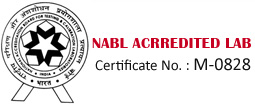When it comes to medical testing, especially in the realm of pathology, the expertise of the professionals behind the scenes can make a significant difference in patient outcomes. Experienced pathologists play a crucial role in the accuracy of diagnoses and the overall quality of healthcare provided. Here’s why testing from an experienced pathologist is of paramount importance:
- Accurate Diagnosis: Pathologists are trained to interpret complex data from various tests, including blood tests, biopsies, and imaging studies. Their experience enables them to identify subtle nuances and patterns that might escape less experienced eyes. A correct and timely diagnosis is the foundation for appropriate medical treatment.
- Avoiding Misdiagnosis: Inaccurate diagnoses can lead to unnecessary treatments, delays in proper treatment, or even harm to patients. Experienced pathologists are more adept at recognizing potential pitfalls and differentiating between similar conditions, reducing the risk of misdiagnosis.
- Complex Cases: Some cases present with complex symptoms or unusual manifestations. Experienced pathologists have encountered a broader range of cases, giving them a better ability to handle complex situations and arrive at accurate conclusions.
- Customized Treatment Plans: An accurate diagnosis is crucial for developing effective treatment plans. Pathologists contribute information that guides healthcare providers in choosing the most appropriate therapies, medications, or interventions for each patient’s unique condition.
- Continual Learning: Medicine is an evolving field, and pathologists need to stay up-to-date with the latest research, technologies, and diagnostic methods. Experienced pathologists are more likely to be engaged in ongoing education and professional development, ensuring that they remain at the forefront of their field.
- Quality Control: Pathology labs run by experienced professionals often have robust quality control measures in place. This helps ensure the accuracy and reliability of test results, minimizing the chances of errors or inconsistencies.
- Interdisciplinary Collaboration: Pathologists often collaborate with other specialists, contributing their insights to a multidisciplinary approach to patient care. Their expertise aids in reaching comprehensive diagnoses and effective treatment plans.
- Rare Conditions: Some medical conditions are rare and may not be encountered frequently. Experienced pathologists are better equipped to recognize and diagnose these unusual cases, preventing delays in treatment for patients with these conditions.
- Research and Innovation: Experienced pathologists are more likely to be involved in research projects and innovative diagnostic techniques. This involvement can lead to improved testing methods and better patient care.
- Confidence and Trust: Healthcare providers and patients can have greater confidence and trust in the accuracy of test results when they know they are being handled by seasoned professionals with a track record of excellence.



